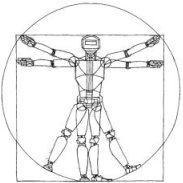Robotics: Science and Systems XI
Material Recognition from Heat Transfer given Varying Initial Conditions and Short-Duration Contact
Tapomayukh Bhattacharjee, Joshua Wade, Charles KempAbstract:
When making contact with an object, a robot can use a tactile sensor consisting of a heating element and a temperature sensor to recognize the object's material based on conductive heat transfer from the tactile sensor to the object. When this type of tactile sensor has time to fully reheat prior to contact and the duration of contact is long enough to achieve a thermal steady state, numerous methods have been shown to perform well. In order to enable robots to more efficiently sense their environments and take advantage of brief contact events over which they lack control, we focus on the problem of material recognition from heat transfer given varying initial conditions and short-duration contact. We present both model-based and data-driven methods. For the model-based method, we modeled the thermodynamics of the sensor in contact with a material as contact between two semi-infinite solids. For the data-driven methods, we used three machine learning algorithms (SVM+PCA, k-NN+PCA, HMMs) with time series of raw temperature measurements and temperature change estimates. When recognizing 11 materials with varying initial conditions and 3-fold cross-validation, SVM+PCA outperformed all other methods, achieving 84% accuracy with 0.5 s of contact and 98% accuracy with 1.5 s of contact.
Bibtex:
@INPROCEEDINGS{Bhattacharjee-RSS-15,
AUTHOR = {Tapomayukh Bhattacharjee AND Joshua Wade AND Charles Kemp},
TITLE = {Material Recognition from Heat Transfer given Varying Initial Conditions and Short-Duration Contact},
BOOKTITLE = {Proceedings of Robotics: Science and Systems},
YEAR = {2015},
ADDRESS = {Rome, Italy},
MONTH = {July},
DOI = {10.15607/RSS.2015.XI.019}
}
